





The first xG-ALOE Plugfest, hosted at Fraunhofer Heinrich Hertz Institute (HHI) in Berlin and organized in collaboration with EANTC AG, concluded successfully after four days of intensive testing, integration, and innovation. From September 29 to October 2, 2025, vendors, researchers, and partners came together in a vendor-neutral environment to advance the latest Open RAN and campus network solutions.
The Plugfest delivered testing insights for next-generation networks. Among the highlights were Failover Radio Units (RU) for reliable connectivity, xApps for RAN attack detection, compact 5G-in-a-box networks with integrated SMO, and UE positioning software for precise location insights. By analyzing Ethernet traffic in real time, participants gained valuable data on bandwidth, latency, and jitter measured in E2E-Szenarios while testing the integration of LiFi, Time-Sensitive Networking (TSN), and 5G/6G core networks.
„Testing next-generation networks means more than just measuring throughput: by generating, time-stamping, and analyzing Ethernet frames, we gain clear insights into bandwidth, latency, and jitter across diverse setups. As we integrate or remove components such as LiFi, Time-Sensitive Networking (TSN), and 5G/6G core networks, we can observe in real time how these emerging technologies influence SLA compliance and shape reliable, future-ready connectivity“, says Gabriele Schrenk, Managing Director of EANTC AG.
The Plugfest also highlighted the importance of interoperability, collaboration, and digital sovereignty, creating a unique platform for open exchange and collective progress towards resilient 5G and 6G infrastructures.
The official results will be published on October 28, 2025, delivering valuable insights for vendors, integrators, and end users alike.
The success of the event was made possible thanks to the contribution of airpuls GmbH, AiVader, brown-iposs GmbH, EANTC AG, Fraunhofer FOKUS, Fraunhofer HHI, Fraunhofer IIS, Hochschule Offenburg, IS-Wireless, QUALIGON, RWTH Aachen University, TU Dresden, and the University of Passau.
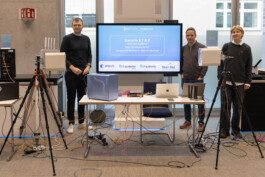
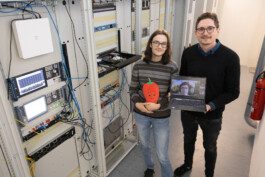
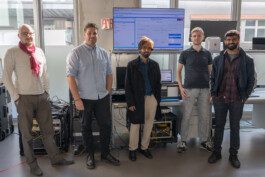
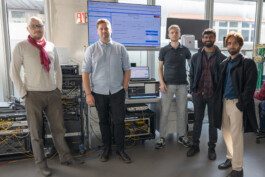
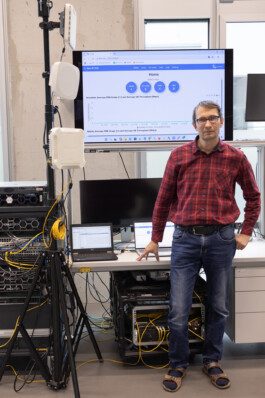
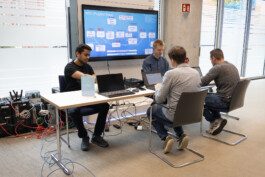
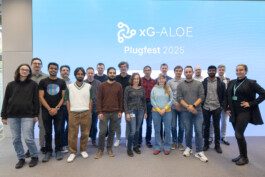
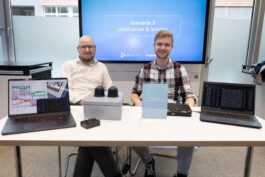
A CampusOS initiative supported by Fraunhofer HHI as host.
Fraunhofer Heinrich-Hertz-Institut, HHI
Einsteinufer 37, D–10587 Berlin
A CampusOS initiative supported by Fraunhofer HHI as host.
Fraunhofer Heinrich-Hertz-Institut, HHI
Einsteinufer 37, D–10587 Berlin